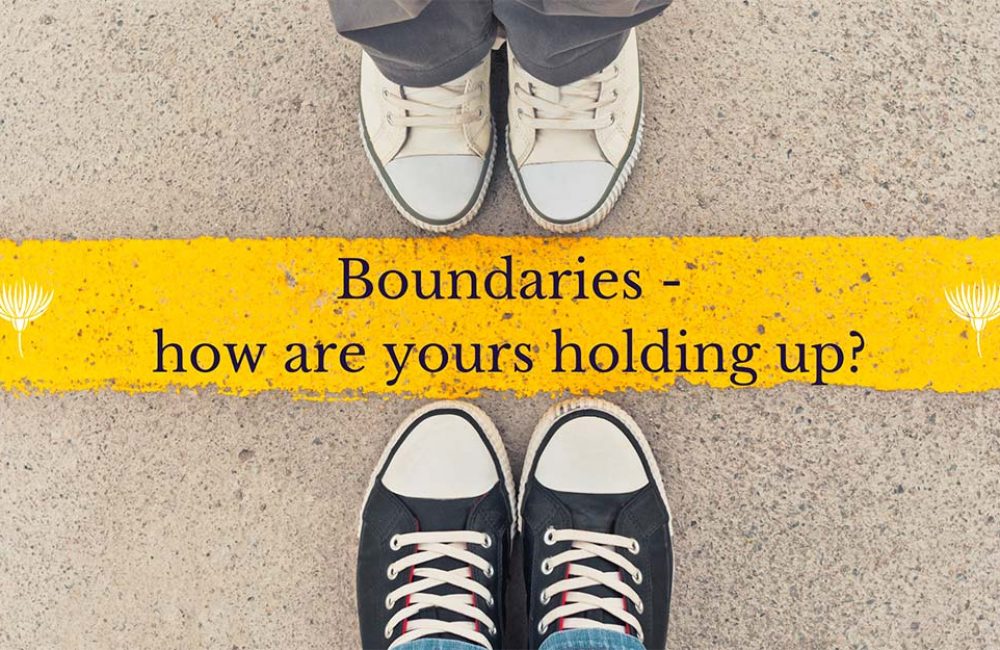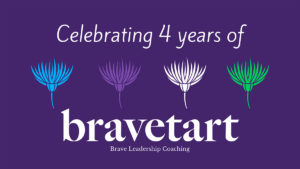Draw a line in the sand. Stand your ground. Make your mark.
We often regard boundaries as rigid immovable and permanent. It’s this belief that often means we resist creating any at all. Either we fear that we will be judged as a consequence or that we will have to maintain them forever. Forever is a very long time.
What if they don’t have to be like this?
What if, holding solid boundaries meant people trusted you more, relied on you more, loved you more? How would you feel about setting solid boundaries now?
Here are my top tips to get you started:
1.Know your own
List out all of the boundaries you have for yourself. What is not ok? Often this is linked to the things you need every day in order to be ok. For example, if you don’t get enough sleep, are you ok? If not, then you will have a boundary around sleep. Define it as clearly as you can e.g. 7 hours every night in total darkness. You can create a positive statement around this so that you are reminding your brain of what you want. E.g. I need 7 hours sleep in total darkness every night so that I have enough energy to be amazing every day.
2. Live them
It’s all very well knowing what your own boundaries are but if you’re not living them, then you’ll not get the results you want. Even more worryingly, you’ll be sending the message out to people that your boundaries are not important. So, don’t be surprised if they trample all over them. It’s really easy to blame others for not respecting your boundaries or believe that they are intentionally crossing them. This can cause conflict and a lot of miscommunication. Be clear in your commitment to maintaining your boundaries.
3. Be flexible
This may seem counterintuitive, but we know that our lives change all of the time. It’s crazy to have totally rigid boundaries that never change. People who have inflexible boundaries will often find themselves feeling disconnected and resentful. Don’t mistake this with bending your boundaries in deference to others. This flexibility is about reviewing whether the boundary is still appropriate to meet your needs. For example, I need 7 hours sleep in total darkness every night might have been reasonable pre-children but anyone who’s ever had a new-born in the house will confirm this boundary will most definitely be trampled over, night after night. So, it needs to be flexible and it might change to “I need to sleep when my baby does”. The boundary around sleep being important remains but how it is defined and executed is appropriate to the situation.
4. Love yourself
Yeah, I know, very cliché! Simply put, if you don’t care enough about yourself to look after your needs, protect your boundaries and adapt your behaviours then why would anybody else? Often, we forget to come back into ourselves and check-in to say, am I ok? What do I need? Having your basic needs met is vital to creating the boundaries in the first place but actually giving yourself the gift of self-care and self-love will be what makes those boundaries strong and supportive.
5. Share them
Be confident about telling people what your boundaries are. If you declare them in a positive and rational way, people will be grateful for your clarity and often will want to help. For example, “I don’t eat cake” might have people trying to persuade you to eat it because you seem unhappy with that boundary, they may assume you’re making a sacrifice and will want to reassure you that cake is totally ok. On the other hand, “I’m not eating cake right now as I’m really enjoying feeling healthy” tends to encourage others to celebrate with you. It also reassures them that it’s about you and not them.
6. Repeat for the boundaries you set for others.
Now that you feel ok with setting your own boundaries and believing that they are important, you will start to feel that people respect you more, they will listen to you more and they will stop pressuring you to eat cake. For some though, this change in behaviour will trigger (often in people really close to us) a need to test the boundaries. In some cases, the change will be such a shock that some people you care about may even be trying to pull them down as quickly as you’re putting them up. So now is the time to create boundaries for other people. What is not ok?
Finding balance in life through loving yourself, having your needs met and maintaining great boundaries can be a game changer, you will need an amount of courage to begin with but if you follow these steps you’ll find a natural and sustainable way to uphold your boundaries both for yourself and for others.
If you would like additional support with creating your boundaries, message me here.




